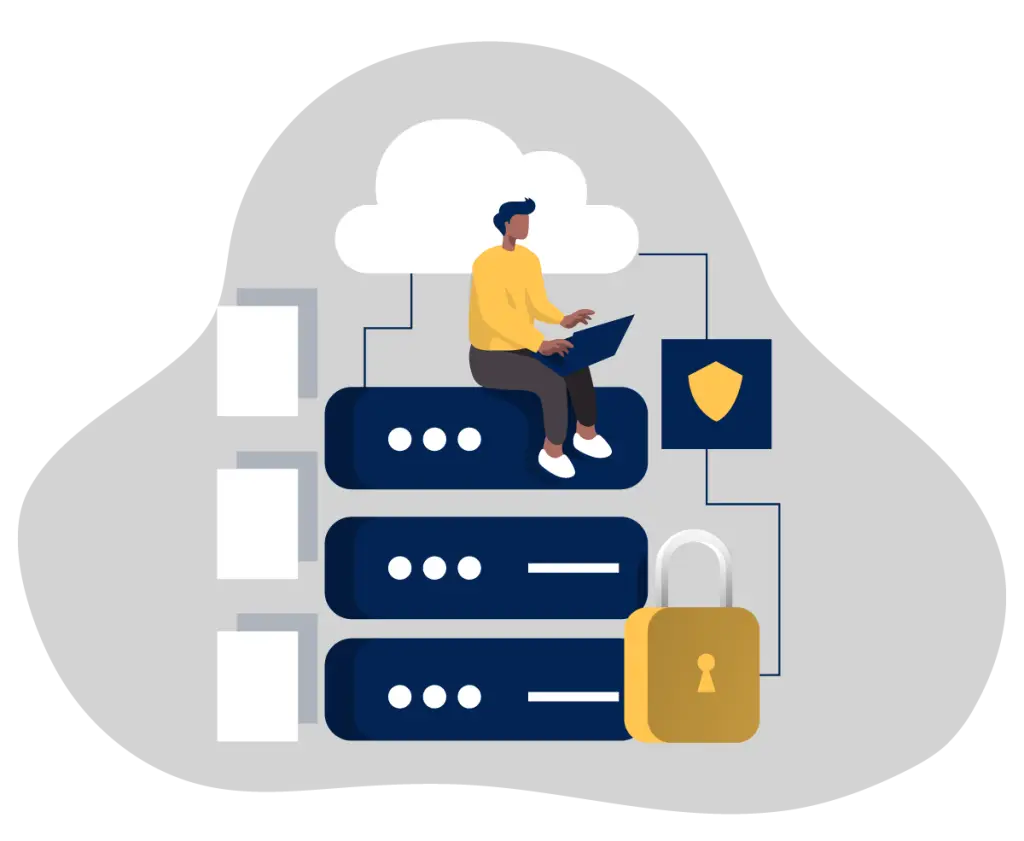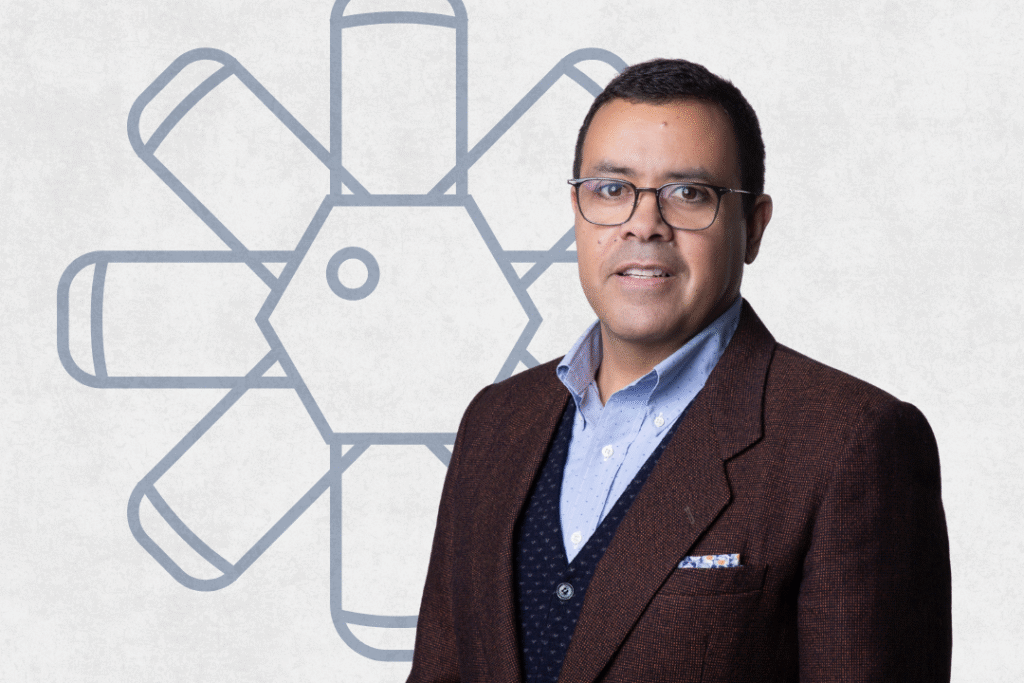Cynapse: Cybersecurity Research Talent Access Platform is a Rogers Cybersecure Catalyst initiative designed to significantly impact research and development efforts in cybersecurity.
This dynamic online initiative helps propel projects to new heights by connecting industry stakeholders with top-tier researchers in the cybersecurity sector.
From research to real-world impact: How Cynapse accelerates cybersecurity innovation
Complex and pressing problems are best solved through collaboration. That’s why Dr. Marcus Santos — the Catalyst’s Academic Director — collaborated with the Talent Access team from the Faculty of Science at Toronto Metropolitan University to define the system requirements, design the platform’s workflow, and refine key elements of its user interface. The result was Cynapse — a software platform that helps address cybersecurity challenges and removes barriers to research and development (R&D) partnerships between industry and academia.
At the core of Cynapse is the belief that academia can solve the practical challenges of cybersecurity. Cynapse makes it faster and easier for businesses and startups to connect with researchers and tap into academic expertise. This is the intersection that Dr. Santos likes to work in.
Bridging academia and industry in cybersecurity
There is a key gap in the innovation ecosystem, which is the difficulty startups and businesses face in accessing specialized academic expertise, especially in complex and rapidly evolving fields like cybersecurity.
As an academic with an eye to industry advancement, Dr. Santos knows firsthand the power of academic-industry partnerships. “By working together,” he says, “academia and industry can more effectively address evolving threats and build scalable, impactful solutions.” Cynapse addresses key cyber challenges by streamlining access to academic expertise, especially for startups and SMEs. It tackles the slow, complex process of forming research partnerships and helps close the cybersecurity talent gap. Dr. Santos explains, “These collaborations accelerate innovation, align academic work with practical challenges, and help develop a skilled talent pipeline. It not only provides access to shared resources and funding opportunities but also enhances the resilience of national cybersecurity; it opens doors.” With tailored matching, Cynapse makes collaboration faster, easier, and more impactful.
So how does Cynapse work?
Cynapse is a concierge-style research matching service that connects startups and businesses with academic researchers at Toronto Metropolitan University (TMU). Here’s how it operates:
- Intake & Discovery: Industry partners submit their R&D needs through a guided intake process. This includes information about their technical challenges, innovation goals, and project timelines.
Tailored Matching: Using an AI-based algorithm and human oversight, Cynapse identifies researchers whose expertise aligns closely with the partner’s needs. This ensures strategic fit and relevance.
Concierge Facilitation: A project manager personally facilitates introductions, validates leads, and orchestrates initial meetings between companies and researchers, helping both parties understand each other’s goals and capabilities.
Streamlined Engagement: Cynapse supports a smooth transition from discovery to collaboration by reducing administrative friction and guiding early-stage conversations. It also tracks matches, feedback, and outcomes to refine future connections.
Cynapse fills the gap between industry’s need for fast, relevant R&D support and academia’s wealth of untapped expertise. Businesses — especially startups — often struggle to navigate universities, find the right researchers, or initiate meaningful collaboration.
Who benefits from Cynapse?
When asked about the ideal candidate for Cynapse, Dr. Santos outlines a cybersecurity startup company driven by collaboration, clear problem definition, and alignment with academic strengths. While not a strict requirement, startups will demonstrate funding (e.g., seed or early-stage funding), as it often better positions organizations for successful partnerships.
A specific number of employees is not crucial, but a startup should have at least a core team to dedicate time and resources to the partnership. This includes individuals who clearly articulate their business challenge, engage regularly with researchers, integrate research insights or prototypes into their product or service, and handle project management and communication. It’s helpful to have a Minimum Viable Product (MVP) which demonstrates that the startup has already validated a core problem and solution, even if it is rudimentary.
What motivates the work?
On a personal level, Dr. Santos is motivated by the work because of the opportunity to solve real problems. This accelerates innovation and empowers researchers and startups to focus on what matters most. “In fields like cybersecurity, where innovation must move fast and problems are complex, traditional partnerships are often too slow or misaligned,” he says. He explains that Cynapse’s concierge model blends AI-powered matching with human facilitation, and for this reason, it stands out as an innovative, scalable solution that enables meaningful collaboration.
Cynapse could change an organization or industry leader by simplifying and accelerating their access to specialized academic expertise for research and development.
In his role, Dr. Santos values “tools, models, and strategies — like Cynapse — that make these partnerships more accessible, strategic, and outcome-focused.” This mentality comes from recognizing that many of the world’s toughest challenges, especially in fields like cybersecurity, AI, and sustainability, require rigorous academic insight and practical industry execution.
Looking ahead
Dr. Santos’ interest in this overlap was reinforced by a webinar hosted by the Catalyst’s inaugural cohort of fellows. The panel discussion, which focused on bridging the gap between academia and industry, confirmed what he had observed over the years through his conversations with researchers and industry professionals. “It highlighted the friction points and communication gaps that often exist between these two vital communities — something I had seen repeatedly in my own experience,” he explains.
The webinar deepened my commitment to this work, as it underscored the potential impact of finding better ways to ‘bridge the bubbles’ that keep these communities apart.
“My greatest hope for the field of cybersecurity is to see a more direct and accelerated pathway for academic research to be applied and adopted by industry,” he says. Dr. Santos envisions a future where the innovative security protocols, threat detection methods, and defensive strategies developed in academic labs can be streamlined for quick application, leading to a stronger, more resilient digital infrastructure for everyone.
Dr. Marcus Santos is the Academic Director for Cyber Studies at Rogers Cybersecure Catalyst. Previously, he was a Faculty Member and Associate Dean for Undergraduate and Student Affairs. Marcus obtained his Doctor of Philosophy (Ph.D.) in artificial intelligence at Universidade de Sao Paulo.







